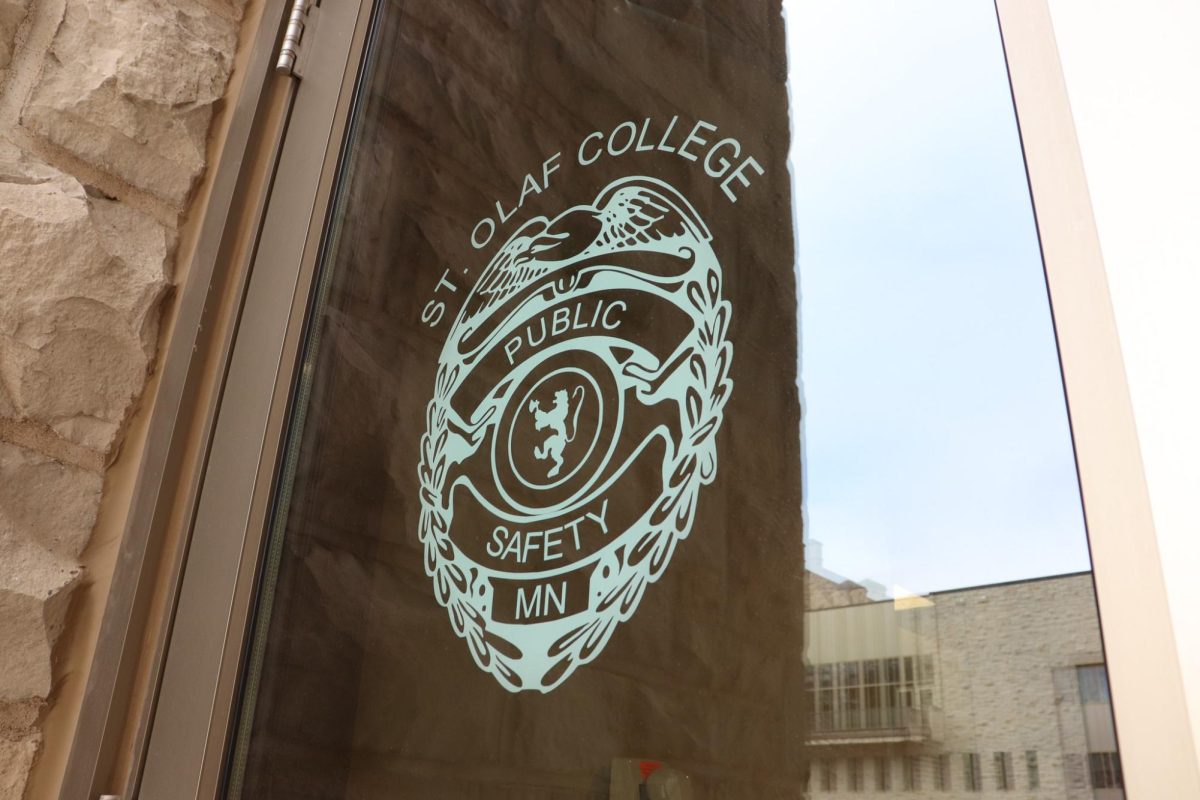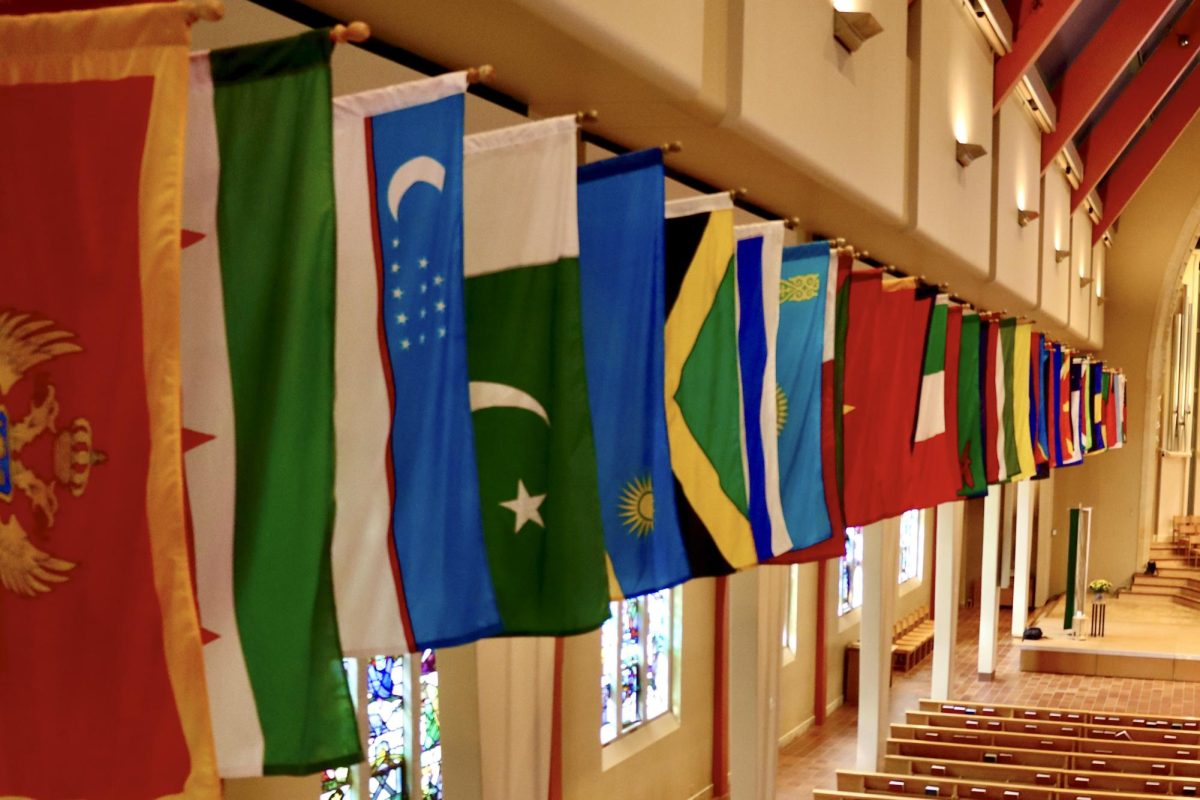While most students were attempting to hibernate inside their dorm rooms to stay out of the cold and make way for the crowds of visiting students, St. Olaf quietly hosted the Minnesota Undergraduate Linguistics Symposium on Saturday, April 13.
The symposium hosted more than 80 undergraduate students from colleges and universities in Minnesota who are interested in the study and research of linguistics. The event featured speakers, a poster session and a panel addressing the possibilities available to those who study linguistics. The symposium was sponsored by the St. Olaf Linguistics Society, a student organization, and the experience was designed, planned and run entirely by students.
Michelle Frank ’13, Carleton student Kelsey Klug, University of Minnesota student Kyle Marek-Spartz and Macalester student Imogen Pursch spent the past several months planning the symposium over email and the occasional video chat. The students orchestrated a statewide academic conference, even though – with the exception of a brief meeting between Frank and Klug last fall – all four students met in person for the first time on April 13.
“The four of us did all of the planning for the event together, from sending emails to various schools throughout the state to advertise the event to brainstorming events for the symposium and figuring out the schedule to reading the submitted abstracts and selecting the speakers,” Frank said. Of course, a year ago, the symposium was only a fragment of an idea.
Last spring, Frank and Kelsey Klein ’13 founded the St. Olaf Linguistics Society. In the process of brainstorming ideas for the new group, Frank came up with the idea for a linguistics symposium. She had no idea whether it could be successful, but began contacting linguistics departments at other Minnesota colleges.
“Originally, [Klein] and I talked about doing some kind of small, St. Olaf/Carleton thing,” said Frank, “but I also sent a few probe emails to faculty at the U of M and Macalester, and they eventually put me in touch with [Marek-Spartz and Pursch], who expressed interest in getting involved with the organization as well.”
After that, the four students began the process of planning the symposium. They contacted current graduate students and asked them to speak at the event, built a website, advertised at colleges and universities all over the state, ordered catering for the event and reserved rooms, tables and speakers. Frank said that, while the students did occasionally ask for help from professors along the way to make sure they were not forgetting anything, the committee of four students essentially did everything.
“I have to say, it was a fairly bizarre experience organizing the symposium,” Frank said. “I’ve been to a number of conferences before, but I’d never really put that much thought into how they all came together.” Now, she said, she has a far deeper appreciation for all that goes into planning a well-organized event.
According to Frank, the symposium was a crucial component to fill the gap between linguistics students at neighboring colleges. While St. Olaf and Carleton are very close geographically, there is hardly any interaction between linguistics students at the institutions. Frank believes that it is important for students to have the opportunity to learn from one another, and this event was integral in making that a reality.
“I think our linguistics studies concentration is honestly one of the weakest programs on campus, and I’ve always found that unfortunate and frustrating,” Frank said. “My hope is that events like the symposium will help spread awareness of linguistics on campus and encourage other students to become involved in it, and that in the long run, an increased student demand will allow the program itself to grow.”
Frank also said that the event inspired students to become more interested in linguistics in general. For some, that may mean pursuing further education in the field of linguistics. For others, it may just mean reading a book or two on the topic. Regardless, the love of linguistics is something that the organizers hope to continue to inspire in students around the state.
“We’re looking at ways to institutionalize the symposium as an annual event, so any interested underclassmen who couldn’t make it this year should consider attending next spring,” Frank said.
She noted that despite St. Olaf’s limited opportunities regarding linguistics courses and the linguistics concentration, there are still plenty of opportunities available for students to study linguistics, especially through research and attending events.
To learn more about the symposium, visit https://sites.google.com/site/mnlinguisticssymposium/.





